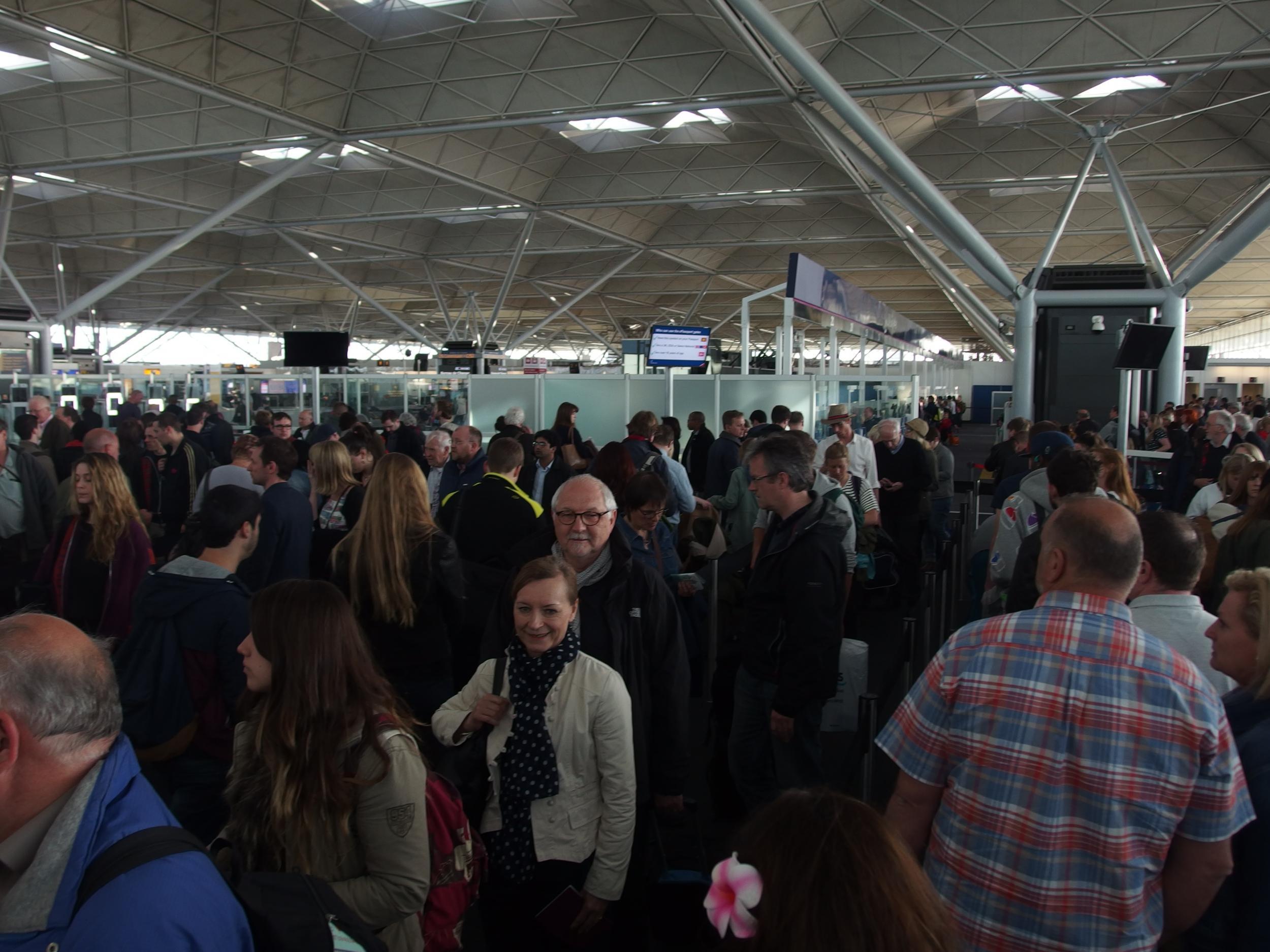Stranded at Stansted or livid in Liverpool? Get used to it
The Man Who Pays His Way

What a week to be an airline passenger. As Euro 2016 got under way, Air France pilots went on strike. The airline said it hoped to operate four out of five departures, but someone at the French carrier evidently decided there wasn’t much happening last Saturday and duly cancelled all the early flights from Paris Charles de Gaulle to Marseille; there were some empty seats in the Stade Vélodrome when England played Russia in the Mediterranean city that evening.
The pilots chose the start of the football tournament to stop work in support of long-standing demands on pay, working hours and the share of investment going into their part of the Air France operation compared with their colleagues (I use the term very loosely in sister airlines KLM and Transavia.
Air France passengers who switched to SAS Scandinavian Airlines to meet their transportational needs were equally flummoxed. The carrier's Swedish pilots also stopped work through the weekend in a dispute over pay. Both sets of flight crews ended their strikes on Tuesday – by which time French air-traffic controllers (ATC) were demonstrating that they have more industrial muscle than any other group of workers in Europe.
France has the busiest skies and yet, quite frequently these days, the least-busy air-traffic controllers. Because they are often not at work.
“We are reaching a pathetic milestone,” said Thomas Reynaert, boss of Airlines For Europe, the trade body for the biggest carriers. “More than 50 ATC strikes in France over the last seven years, which account for more than 150 days of disruption.”
The dispute has run for so long because it is complex and bitter. The controllers claim safety is being compromised. They point to a lack of investment in state-of-the-art equipment, and say cutting jobs while the skies become ever-busier is dangerously increasing their workload. The system, they say, is being unnecessarily stressed at a time when airlines are thriving. And they want guarantees on job security, pensions and career development at a time when Europe is moving towards erasing international frontiers and cutting air-traffic jobs.
With nine days of stoppages in the past three months, you can find plenty of evidence about the impact of a French ATC strike. It always affects airlines hoping to fly over France more than those going to or from the country. British Airways cancelled twice as many flights to destinations in Italy, Switzerland and Spain than it did to cities in France. With planes stuck on the ground for hours while waiting for slots to become available, the knock-on effects of the strike rippled right across Europe. Barely was everyone back where they needed to be before controllers in Italy enjoyed a very long lunch on Friday, stopping work for four hours from 11am.
In the unlikely event that you managed to escape all of that, I will remind you that this coming week it is the turn of members of Greece’s Federation of Civil Aviation Unions to exercise their right to strike. They are angry at government plans to privatise 14 airports, including Corfu and Santorini. Greek politicians have leased the airports to a consortium involving Fraport, which owns Frankfurt airport, as part of the country’s bail-out deal. They fear the new bosses will seek to extract more productivity from fewer staff. So they will stop work from Monday to Friday in protest.
Perhaps you are reading this in the disagreeable circumstance of being stranded at Stansted or livid in Liverpool. As your plans for a weekend escape, family holiday or business trip disintegrate, you might understandably regard the industrial turmoil as a metaphor for Europe: a frustrating mess of division and self-interest.
Yet I read the disruption as a side-effect of success. European travellers enjoy an unprecedented range of flights and, in real terms, the lowest fares in aviation history. At the same time, many airlines and airports are prospering, thanks to a laser-sharp focus on reducing costs and boosting efficiency. But while passengers enjoy cheap flights and investors reap dividends, plenty of the workers who keep aviation aloft feel that they are unwilling participants in a cost-cutting race to the bottom.
One happy day in the distant future, everyone will feel they get a fair deal. But until then it could be a long, hot summer.
Subscribe to Independent Premium to bookmark this article
Want to bookmark your favourite articles and stories to read or reference later? Start your Independent Premium subscription today.

Join our commenting forum
Join thought-provoking conversations, follow other Independent readers and see their replies